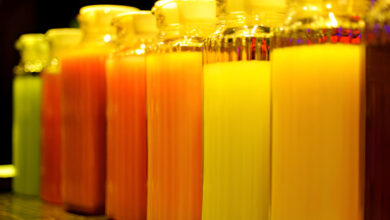Nightshade Foods Explained: What’s Safe and What to Skip

Many vegetables come under the umbrella of nightshade, including potatoes. Eggplant, tomatoes, peppers, and potatoes. In addition, tobacco is also part of the nightshade. Small amounts of alkaloids are found in nightshades, making them unique.
Do you know about alkaloids? Basically, it is a chemical that mainly exists in plants. It has nitrogen that affects the human body, especially from a medical perspective. Furthermore, Alkaloids also have Morphine and quinine, which are considered plant-based medicines.
Note: Almost two thousand types of vegetables fall in nightshade vegetables, but the majority are not for humans.
Nightshade Fruits and Vegetables: What’s the Difference?
Let me clarify this difference: people consider tomatoes vegetable due to their savory flavor. In fact, tomatoes are fruit. Fruit develops in plants, from flowers to seeds, and is edible. Eggplants and peppers also fall in nightshade fruits. On the other hand, vegetables are also edible parts of a plant, such as stems, leaves, and roots. Well, potatoes fall in nightshade vegetables; they are not fruits.
Are Nightshades Bad for Your Health?
I have mentioned earlier those alkaloids are found in nightstand vegetables and have a positive impact, but some chemicals like tobacco have a negative effect that can cause cancer.
Solanine is an alkaloid found in nightshade plants. Solanine acts as a natural insecticide on the plant while it is growing.
You may feel bad if you overeat solanine. The taste of potatoes becomes bitter when they turn green, indicating a higher level of alkaloids. The reason people usually recommend getting rid of green potatoes and sprouts is because they are dangerous. Green potatoes may make you feel sick to your stomach with diarrhea or nausea. Fever and headache are also possible.
How much nightstand vegetable should you consume?
Regarding the number of alkaloids in potatoes and other foods, it is acceptable. Consuming between two and five milligrams of solanine per kilogram of body weight may cause some side effects. One hundred thirty-six milligrams of solanine can cause illness in someone weighing 150 pounds (68 kilograms).
Misconception about nightstand vegetables:
Some vegetables are considered nightstands, but they are not.
- Onions
- Sweet potato
- Zucchini
- Mushrooms
- Black pepper
- Peppercorns
- Blueberries
- Okra
- Coffee
The majority of fruits and leafy vegetables are not nightshades.
List of Nightshades vegetables:
You need to know about three edible nightshades out of the thousands of non-edible nightshades out there.
| Sauces, Binders, and Condiments | Seasonings and Spices | Vegetables & Fruits |
| All green and red salsas | Paprika | Potatoes excluding sweet potatoes |
| Ketchup | Curry powder | Tomatoes |
| Mole sauce | Garam marsala | Tamarillos |
| Pico de Gallo | Chipotle chili powder | Eggplant |
| All hot sauces | Cayenne pepper | Habaneros |
| BBQ sauces | Chili powder | Serrano |
| Red pasta sauces | Cayenne powder | Ashwagandha |
| BBQ rubs | Banana peppers | |
| Chicken rubs | Jalapenos | |
| Taco seasoning mixes | Pepinos | |
| Chipotle |
Advantages of Nightshades:
Nightshades are a family of plants, including tomatoes, potatoes, peppers, and eggplants. They’re common in many cuisines, but some people avoid them because they contain compounds that can be toxic in large amounts.
However, nightshades also have many health benefits. Here are 10 of them:
- Vitamins and minerals are abundant in nightshades.
- Your digestion will be improved, and constipation will be avoided.
- By boosting your metabolism, nightshades can aid weight loss.
- They can improve your digestion and prevent constipation.
- Nightshades can help to lower cholesterol and reduce the risk of heart disease.
- They can help to regulate blood sugar levels and prevent diabetes.
- Sleeping with a nightlight can reduce inflammation in the body.
- Your skin can be protected from damage and kept in good health with these products.
- Nightshades boost the immune system, and you are better able to fight infections with them.
- Nightshades are a natural energy source and can help you stay alert and focused.
A brief overview of elimination diets
If you suspect you may be sensitive to nightshades, elimination diets require a lot of work and effort. To determine whether nightshades are good for us to include in our diets, we should use a nightshade elimination diet since it provides us with information that is unique to each individual. While having a nutritionist’s guidance is helpful for accountability, this is something you can do on your own as well.
- For one week, you should keep a food journal, logging what you eat, when you eat it, and how you feel afterward.
- During the next two weeks, stop eating nightshades and keep a record of how you are eating in relation to your symptoms.
- Once you’re reintroduced to nightshade foods, reduce your intake appropriately if you notice you’re feeling worse.
Conclusion
Many nightshades are actually very healthy, and there is no substantial evidence they cause inflammation. Therefore, it is essential to systematically eliminate and reintroduce nightshades from your diet to determine whether they are causing your symptoms.



